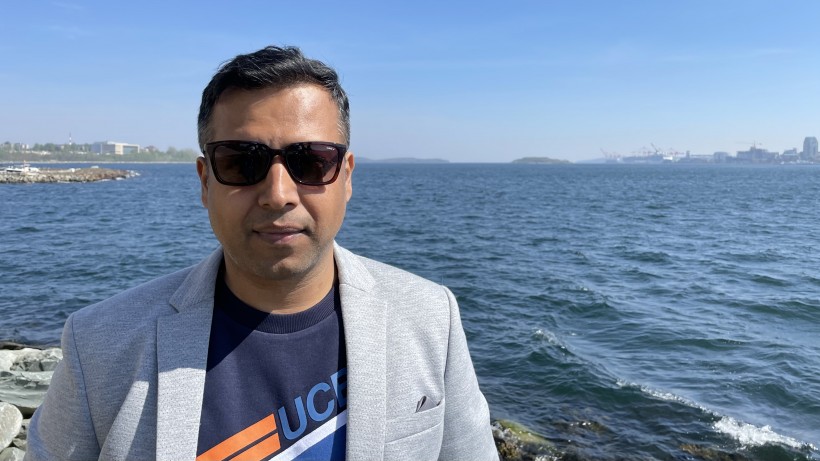After successful medical trials in India, Halifax's NeoCare is aiming to recreate the promising results in Canada as it looks to secure regulatory approval and close a $750,000 funding round.
NeoCare’s flagship product is SAMIRA — a system that uses light shone through a newborn’s thumb to test for jaundice, anemia and hypoxia, all of which are leading causes of infant mortality globally. Hospitals usually monitor for those conditions via blood draws performed every six hours. But that approach can involve problematic delays in analysis and can be both painful for the infant and upsetting for parents to witness.
Chief Executive Soumendra Singh said in an interview that SAMIRA is simple enough to be operated by minimally trained workers, since its use involves only holding a pencil-sized optical probe against a baby’s thumbnail, with the rest of the analysis being performed automatically and the results displayed on a screen.
“We provide a painless, instantaneous and stress-free solution … for the determination of diseases like anemia, jaundice and hypoxia,” Singh said. “This comes in contrast with conventional methods that involve multiple needle pricks — and all of this at a very affordable cost.”
The technology is also internet-of-things enabled, creating possible applications in telehealth.
NeoCare is the brainchild of Singh, a biomedical engineer who also runs a life sciences startup in India, as well as Chief Technical Officer Samir Pal, a professor at the S. N. Bose National Centre for Basic Sciences in West Bengal and Chief Medical Officer Assim Mallick, a professor of neonatal medicine at Nil Ratan Sircar Medical College and Hospital, also in West Bengal.
So far, the three founders are the only people working full-time on NeoCare. The team has performed its trials on a little over 1,500 patients in India because of the lower costs associated with running studies there. And Singh plans to use the money the company is raising to hire staff who will recreate the research at a smaller scale for the benefit of Canadian regulators — possibly under a partnership with the University of Calgary, although that potential deal remains to be finalized.
In both Canada and the United States, the Samira system is considered a Class II medical device, meaning it is meant to supplement existing medical care practices, rather than usurp them. That designation, as opposed to riskier Class III devices, comes with a simpler regulatory pathway.
Singh hopes to secure regulatory sign-off and begin marketing the device in North America within about two years, with manufacturing to be conducted in Canada. The NeoCare team has also bagged a provisional patent in the United States, with Singh describing a full patent as likely to arrive soon.
Later, he said NeoCare plans to also market SAMIRA heavily in regions of the world where access to medical care is limited, since the system’s portability, ease of use and capacity for remote communication make it well-suited to use in non-standard settings, such as rural clinics.
“Part of our focus will be … places with low resource settings where we don't need trained manpower and big laboratories — places where these things are not available,” said Singh.
“All you have to do to use SAMIRA is carry a small bag (containing the device), and the results are right there. And since the instrument is IoT, a doctor sitting thousands of kilometres away can see the data and prescribe medicine.”










